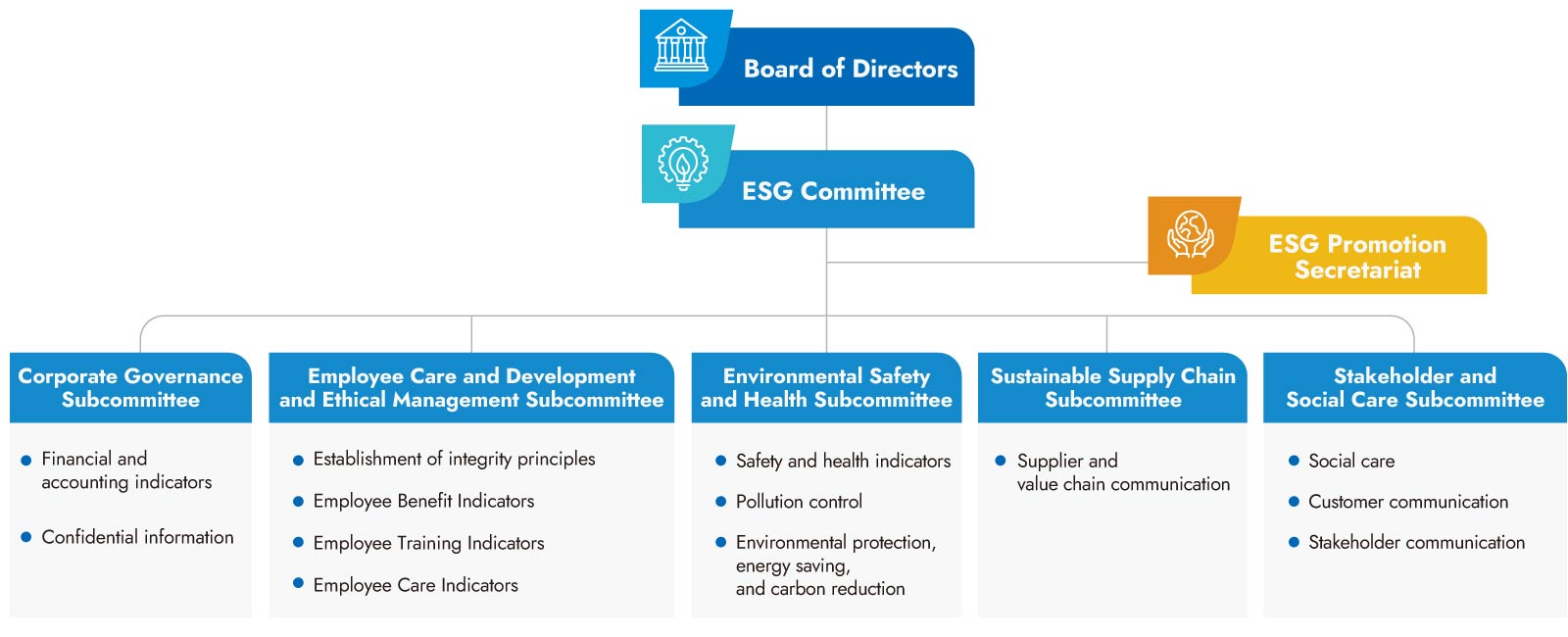To fulfill our corporate social responsibility and promote sustainable development, iST formed the “ESG Committee” on January 10, 2023, with the Chairman Wei-Been Yu as the chair and the senior managers above the department level as the committee members. The ESG Committee integrates the ESG strategy direction and resources across departments. It appoints the vice president of the Administration Division as the Committee’s convener responsible for leading the “ESG Promotion Secretariat” to promote ESG-related work and convening meetings regularly to confirm and review the effectiveness of promoting the ESG. The ESG Committee has five subcommittees: “Corporate Governance Subcommittee,” “Employee Care and Development and Ethical Management Subcommittee,” “Environmental Safety and Health Subcommittee,” “Sustainable Supply Chain Subcommittee,” and “Stakeholder and Social Care Subcommittee.” It guides the economic, environmental, and social management indicators of corporate social responsibility and supervises the “ESG Promotion Secretariat” to implement economic, environmental, and social performance management indicators.
The ESG Promotion Secretariat is responsible for performing regular identification of stakeholders, collecting and inspecting the issues concerned by stakeholders, and reporting to the ESG Committee. The ESG Committee’s convener regularly submits the relevant implementation effectiveness and resolution plans to the Board of Directors in the annual meeting held regularly. The Board of Directors would implement relevant resolutions and provide necessary resources.
iST also established the Sustainable Development Best-Practice Principles. According to the Principles, we implement corporate governance, develop a sustainable environment, maintain social welfare, and strengthen disclosure of information in corporate sustainable development. We establish crucial promotion items and implement the following:
1. Implementing corporate ethical governance and risk management mechanisms to practice sustainable operating
- Developing a complied culture in ethical governance
- Enhancing the awareness of ethical conduct with integrity among the employees
2. Forming the low-carbon values to move toward the net-zero goal gradually
- Complying with environmental laws and regulations and reducing environmental burden
- Dedicating ourselves to energy saving and carbon reduction and building a green value chain
3. Establishing a diverse, friendly, and inclusive workplace to achieve employee value and practice sustainable development
- Enhancing personnel attraction and retention and intensifying talent cultivation and development
- Establishing a diverse and friendly workplace and providing work-life balance
4. Increasing social engagement and enhancing stakeholder management to create sustainable values
- Expanding industry–academia-research collaboration and enhancing social engagement and social welfare
- Establishing multiple communication channels and implementing a transparent disclosure mechanism

